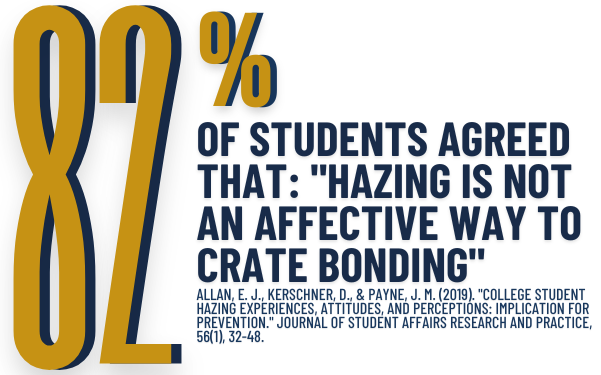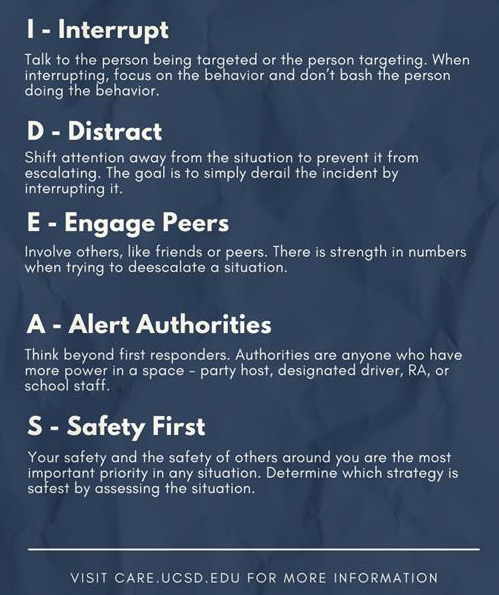Hazing Prevention
- What is Hazing?
- Laws and Campus Policies
- Hazing Prevention Resources
- Report Hazing
- Transparency Reporting

Located on the third floor of the Price Center (map), the Center for Student Involvement has organization advisors who can assist you in developing new member activities, including:
There are many healthy ways to create a sense of belonging and affiliation. Ethical leadership is a form of leadership based on strong moral principles and universal values, such as integrity, transparency, and respect for others. Indeed, an ethical leader not only focuses on achieving organizational goals but also on the well-being of their members and the community more broadly.

UC San Diego has our own bystander intervention model called IDEAS that can be applied to a variety of topics, including hazing.
The IDEAS model is intended to teach students and staff tangible skills to address a situation in the moment, reducing the immediate threat of harm.
IDEAS is an acronym - each letter stands for a different bystander intervention technique.